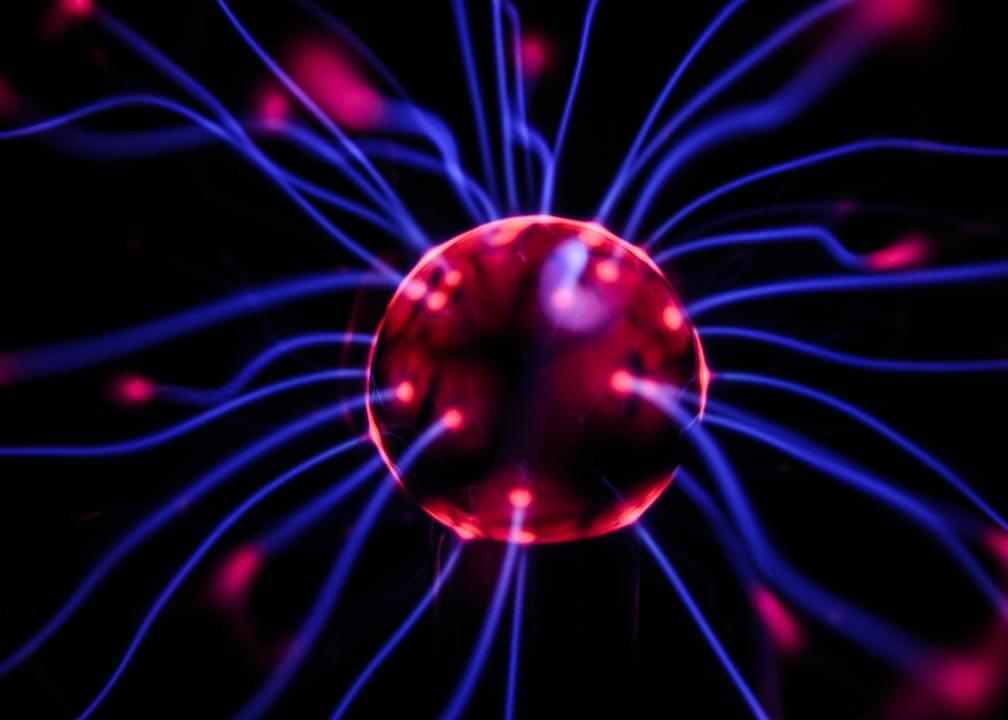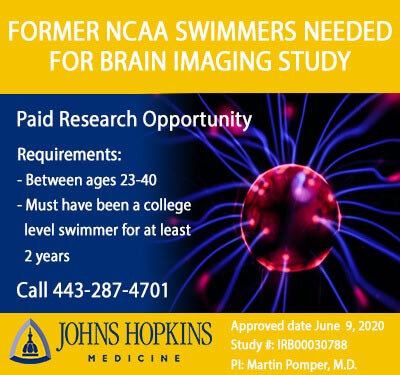Imaging Brain Health in Athletes; Former NCAA Swimmers Needed for Johns Hopkins Study

Former NCAA swimmers needed for brain imaging study!
Compared to contact sports like American football, swimming poses less risk for traumatic brain injury, including concussion. Concussive hits are a concern in football, because the repeated concussive and subconcussive hits may contribute to the development and/or exacerbation of mental health conditions like depression and memory loss.
While low-contact sports like swimming may be relatively spared of brain injury, the emerging, research breakthroughs that are furthering our understanding of brain health and injury promise to benefit high- and low-contact athletes. Specifically, researchers are focusing on understanding the brain’s immune response to injury. This persistent brain inflammation – whether due to direct hits in American football, blast injuries incurred through military service, inflammatory medical conditions, or immune-triggering behavioral habits – pose increased risk of mental health conditions.

Photo Courtesy: Jesse Orrico
With state-of-the-art brain imaging technology, The Brain Health Program at the Johns Hopkins University has found ways to pinpoint and study inflammation in the brain using a combination of brain scans and complementary blood tests.
This work extends from exciting breakthroughs happening in this field of imaging, including the discovery of new protein markers in the brain that facilitate detecting the brain’s inflammatory response and following it over time. With federal funding from the National Institutes of Health, the Brain Health Program researchers are conducting a large-scale study that seeks to measure a particular inflammatory protein in the brains of former NFL players who have recently stepped away from the game. The imaging data will be compared to those data from imaging the brains of non-collision sport athletes, including swimmers. The effects of sport and lifestyle-related factors on brain health will be studied. In addition, each person has the opportunity to return for repeat brain imaging two years after initial scanning to track changes in the immune marker over time. Through these research measures, the Brain Health Program ultimately aims to inform new, immune-modifying treatment strategies that dampen harmful inflammation to promote long-term brain health.
Dr. Coughlin is the co-founder of the Brain Health Program and principal investigator of the federally funded study mentioned in this article. If interested, please contact Dr. Jennifer Coughlin and her study team at Johns Hopkins Hospital: 443-287-4701 or jcoughl2@jhmi.edu.

All commentaries are the opinion of the author and do not necessarily reflect the views of Swimming World Magazine nor its staff.



